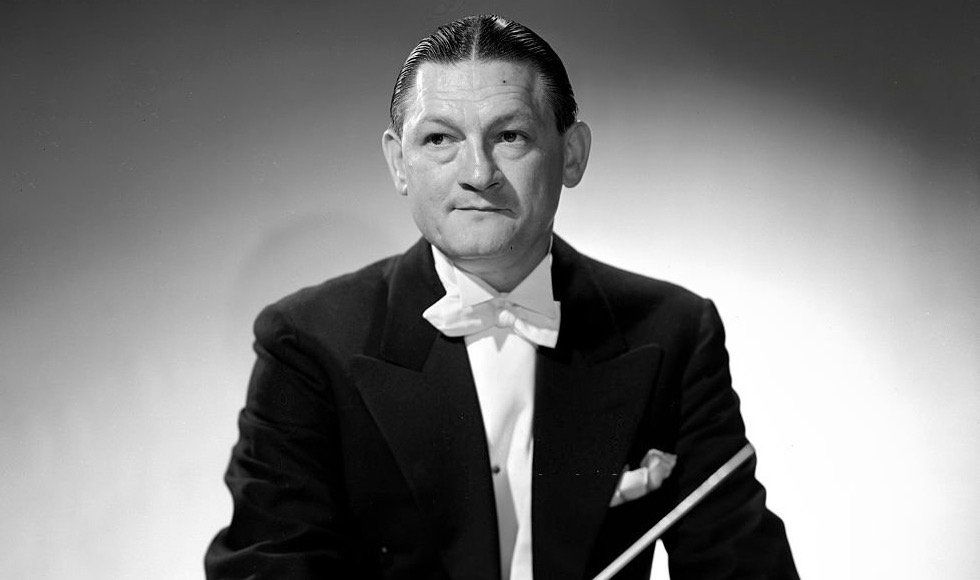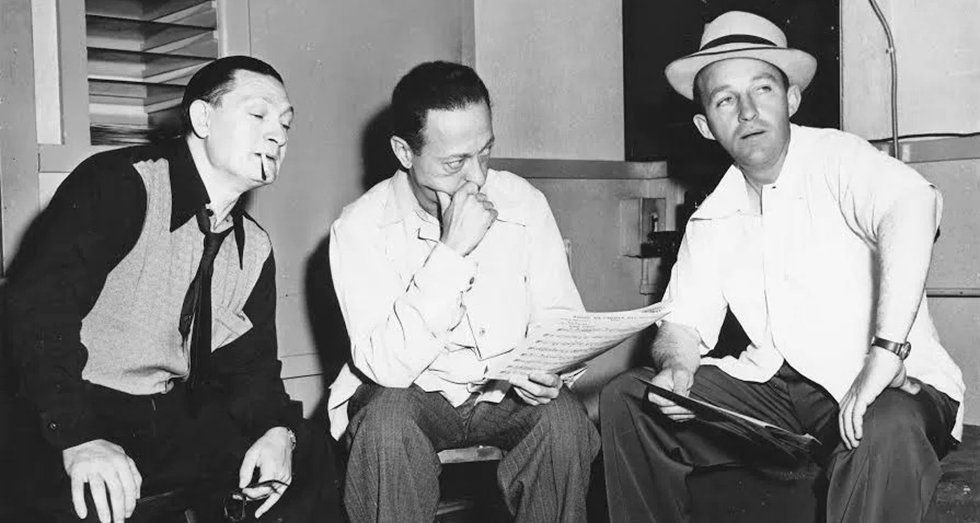Victor Young 1900-1956

One of the most gifted composers and melodists in the Golden Age of Hollywood was Victor Young. He was born of Polish parents in Chicago on the 8th August 1900 and music was a part of the household, as his father William was an operatic singer. When he was six years old, young Victor started playing the violin, one of his ‘tricks’ being to play Yankee Doodle Dandy whilst holding the violin over his head. (At least he was not like Bernard Herrmann, who broke his violin over his teacher’s head!) Upon their mother’s death in 1910, Victor was sent to Warsaw with his sister Helen to live with their grandparents. His grandfather, recognising the boy’s musical gifts, made him polish the floor with cushioned feet whilst practising his scales and also enrolled him in Warsaw’s Imperial Conservatory, where one of his tutors was Roman Statlovsky, a protege of Tchaikovsky. Following his graduation, Young performed with the Warsaw Philharmonic. In 1917, during the First World War, he was arrested in Russia but escaped back

When fellow-musicians in more sedate branches of the music field ask why on earth I chose to become a film composer, I am stumped for a ready answer. Why, indeed, would any trained musician let himself in for a career that calls for the exactitude of an Einstein, the diplomacy of a Churchill, — and the patience of a martyr? Yet, after doing some 350 film scores, I can think of no other musical medium that offers as much challenge, excitement, — and demand for creativity in putting music to work. Every new film is unique in its dramatic values, and, scene for scene, asks for a fresh musical interpretation of the human comedy. The film composer must be equipped with an unflagging interest in the universe of man and a gargantuan knowledge of musical forms.
Reviews

It must be stated first that this CD does not include Frank Sinatra’s rendition of that song. It can however be found on the CD Frank Sinatra sings Sammy Kahn.
Having got that admission out of the way there is so much more to admire on this album. The first track ‘Prelude’, high spirited and infectious, heard under the opening credits, is typical of Victor Young’s sparkling easy-listening score. The 1954 film, Three Coins in the Fountain, was an enormous box office hit for 20th Century Fox. It was made even more popular, of course, by that song delivered by Sinatra against a backdrop of fountains in and around Rome including the spectacular water displays at the Villa D’Este (pictured right) in the film’s pre-opening credit sequence. It was the first Cinemascope film to be shot on location outside the United States and it was distinguished by the wonderful colour photography, by Milton Krasner, of Rome and Venice.

Victor Young's opening Main Titles set the mood with an exciting, nay breathtaking theme very reminiscent of Richard Strauss in Don Juan mode. This score is classical Late Romantic excitement and romance with a vengeance. Young blends pastiches of delicate, courtly Pavanes for Aline (Janet Leigh) in her dancing classes with thrilling music for the duels and chases, and darkly menacing figures for the arrogant, cold-hearted Marquis de Maynes. There is affecting tragic material for the death of André's friend Philippe (Richard Anderson) and a noble motif for André's (Stewart Granger) pledge of vengeance. Some of the action material is written in tongue-in-cheek tribute to earlier silent film scores and music used later in serials.



